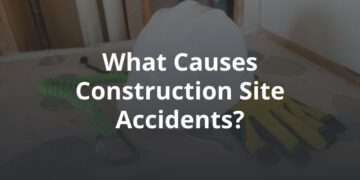Vehophobia is a fear of driving that can arise in a variety of different ways. A fear of driving can result from personal experience or from witnessing others’ negative experiences. It can be very difficult to live with vehophobia, given how much people rely on driving to get from one place to another.
This article will dive into vehophobia and ways to treat it. It is not intended to provide medical advice, but it can be a starting point to understand your own experiences and explore treatment solutions.
Defining Vehophobia
A phobia is a fear of a particular thing or situation, and it does not need to be based on the actual likelihood of encountering that thing or situation.
Like other phobias, vehophobia can show up as a natural aversion or in response to firsthand or secondhand experience. That means that someone who has never driven a car or been in a car accident can experience vehophobia.
Common Symptoms of Vehophobia
Someone with vehophobia might experience one or more stress responses in reaction to driving.
Symptoms of vehophobia can include:
- Increased heart rate, even while sitting still
- Sweating, regardless of the temperature or climate
- Shallow breathing: a lack of oxygen from shallow breathing can cause stress hormones to build up in the body
- Nausea while driving or at the mere thought of driving
- Panic attacks while driving
- Shaky hands
- Tenseness in the muscles, which can escalate to physical pain
- Nightmares, flashbacks, or other fear responses for an extended period of time after an incident
- An aversion to driving or putting off activities that involve driving
It is important to distinguish vehophobia from two related phobias, amaxophobia and hodophobia. Amaxophobia is the fear of being in a vehicle. Hodophobia is the fear of traveling.
People with vehophobia may also have amaxophobia, hodophobia, or both. However, someone with vehophobia may still be able to get into a car that someone else is driving or may be able to take other forms of transportation.
Post-Car Accident PTSD
Many people develop vehophobia after a motor vehicle accident (MVA) or a near-accident. This is a form of post-traumatic stress disorder (PTSD).
Someone who has this form of PTSD may experience a range of different symptoms — everyone experiences PTSD differently. People may experience flashbacks, nightmares, and bodily stress responses as though they are in the moment of the accident or near-accident.
People can also experience a range of physical symptoms. For instance, people with post-MVA PTSD often startle easily or sleep poorly.
If a motor vehicle accident has caused someone lasting (chronic) pain, it may impact them in other areas of life, including limited freedom to move or travel, restrictions on available work, inability to do certain exercises, and increased medical costs. All of these impacts can worsen the stress of having experienced the accident. Such physical injuries are also associated with the development of PTSD.
Post-MVA PTSD can cause people to experience other mental health issues at the same time as the PTSD, which is called comorbidity. For instance, people may feel emotionally disconnected, experience major depression, or even develop a substance use disorder.
Fortunately, psychological disorders and mental health issues that arise after a motor vehicle accident can be treated with appropriate therapy.
Treating and Overcoming Vehophobia
A variety of treatment options exists for people living with vehophobia.
A doctor may be able to help identify the best treatment option for you.
- Talk Therapy: Talking about the fear and any associated experiences with a therapist can help someone work through the negative feelings they have around driving. Cognitive behavioral is a common form of talk therapy that can help people weaken the association of driving with those negative feelings.
- Exposure Therapy: Someone might be able to get over their fear by driving again. This should be done with the direction and guidance of a licensed therapist.
- Hypnotherapy: This is another form of therapy that can condition someone out of their fear response and process feelings that might be challenging to process consciously. This should be done only with the guidance of a licensed hypnotherapist.
- Medication: While medication may not address the root cause of vehophobia, it can allow someone to go about their daily lives as they begin the process of managing the underlying fear.
- Driver Education: If the fear of driving stems from a lack of experience or confidence, taking a driving course and learning strategies for defensive driving can make someone feel confident enough to get behind the wheel again.
Contact our Car Accident Law Firm in Austin, TX
Finding a lawyer can help someone with vehophobia find peace of mind, explore options for recovery to pay any medical expenses, and begin to move forward after a car accident. Reach out to FVF Law today to find a car accident, motorcycle accident, or truck accident lawyer in the Austin, TX area.
If you’ve been injured in an accident in Austin and need legal help, contact our Austin Car Accident lawyers at FVF Law to schedule a free consultation with our team.
FVF Law
3101 Bee Caves Rd #301, Austin, TX 78746, United States
(512) 982-9328







